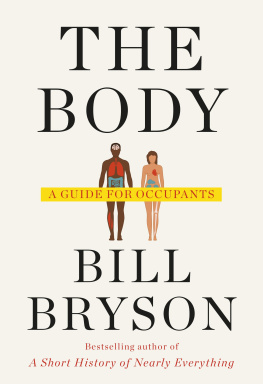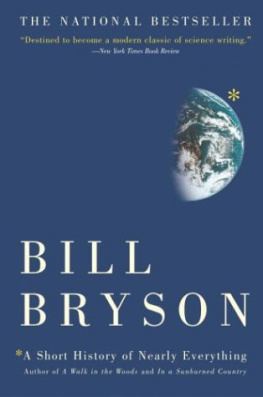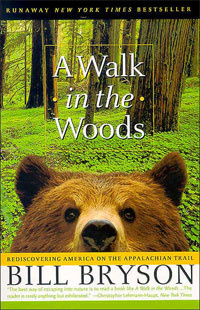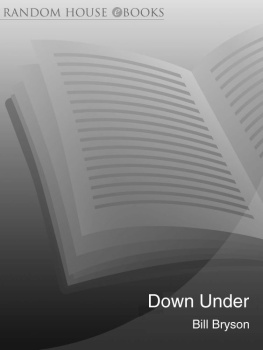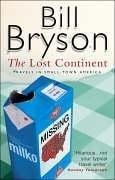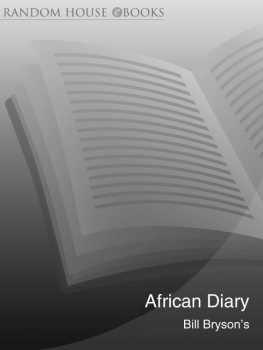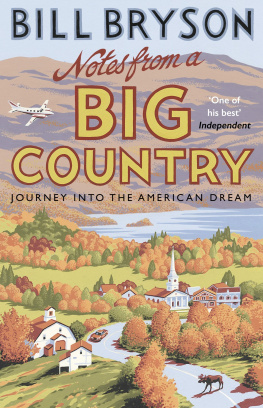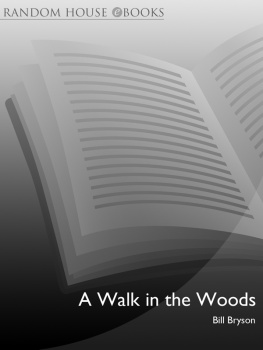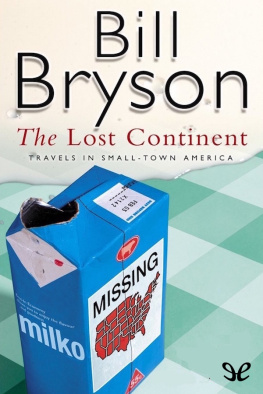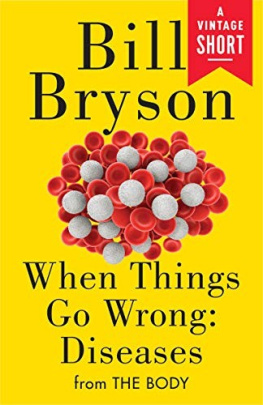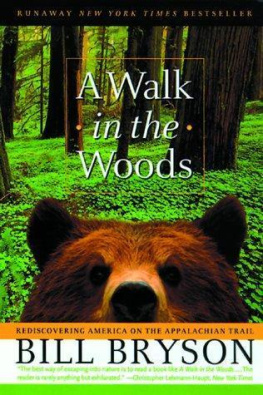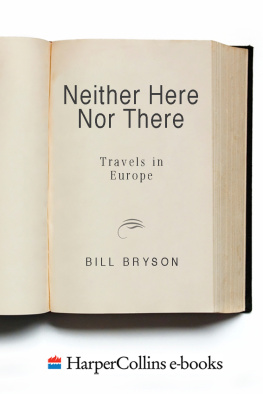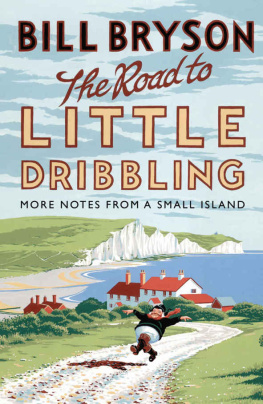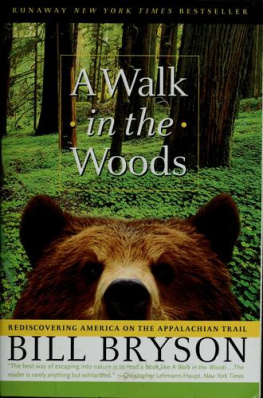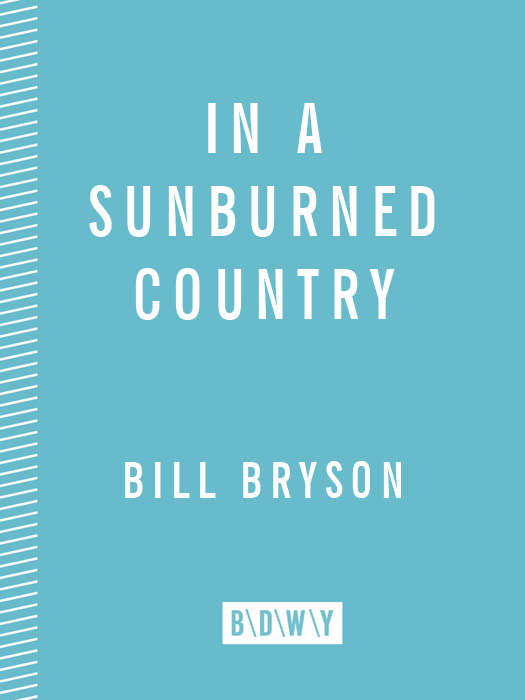
Turn the page for an excerpt from
Bill Bryson's gripping narrative about
an iconic year in American history,
One Summer: America, 1927
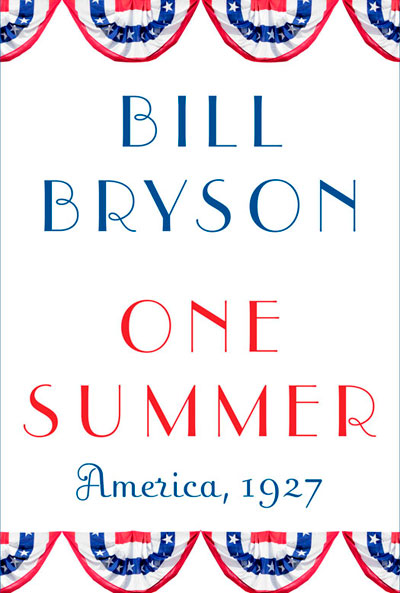
Available wherever books are sold

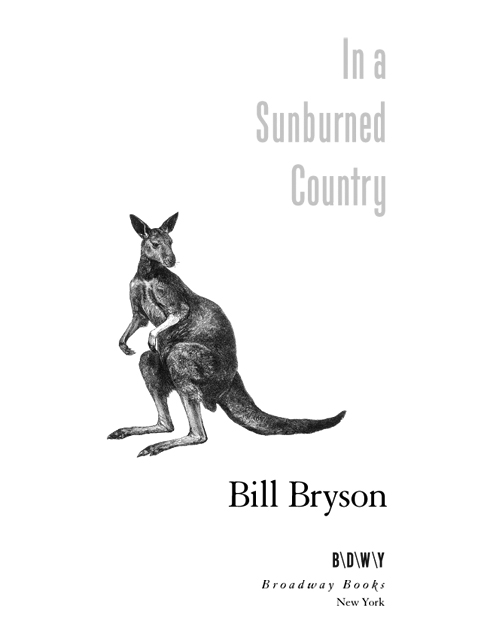
Contents
To David,
Felicity,
Catherine,
and Sam
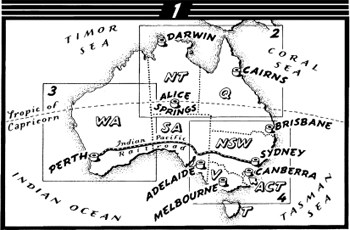
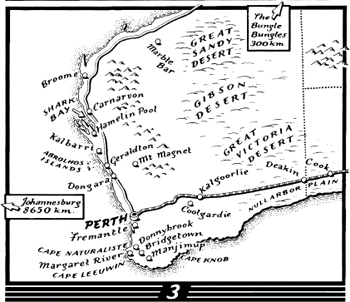
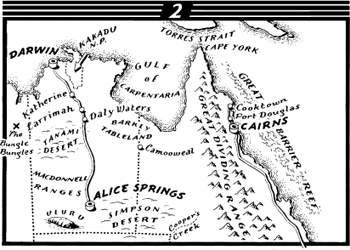
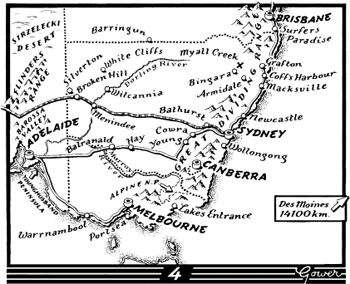
Acknowledgments
IN 1908, AN AUSTRALIAN POET of no particular renown named Dorothea Mackellar submitted a poem called Core of My Heart to the Spectator magazine in London. Retitled My Country, it has since become probably the most beloved poemcertainly the most memorized and oft-recited by schoolchildrenin Australian literature, almost entirely because of four lines in the second verse:
I love a sunburnt country,
A land of sweeping plains,
Of ragged mountain ranges,
Of droughts and flooding rains.
I mention this here both to acknowledge my debt to Ms. Mackellar for the title of this book and in the hope of forestalling ten thousand or so letters from readers pointing out that it should be called In a Sunburnt Country. I know it should, but it isnt.
I have never before felt like thanking an entire nation for helping me write a book, but I have never before received more generous and spontaneous assistance from a greater variety of people than I did Down Under. So thank you, Australia.
I wish to express my particular gratitude to Alan Howe, Carmel Egan, Allan Sherwin and Deirdre Macken for their astute observations and sporting participation in what follows. I am also much indebted in Australia to Jim Barrett, Steve Garland, Lisa Menke, Val Schier, Denis Walls, Stella Martin, Joel Becker, Barbara Bennett, Jim Brooks, Harvey Henley, Roger Johnstone, Ian Nowak, the staff of the State Library of New South Wales in Sydney and the late, dear Catherine Veitch.
Further afield, I am especially grateful to Professor David Blanchflower of Dartmouth College for much statistical assistance; to my agent Jed Mattes for his constant and selfless attention at a time when he had every right to be fully distracted by a serious and worrying illness; and to many kindly and supportive people at Broadway Books during various stages of the books evolution, among them Steve Rubin, Gerald Howard, Bill Shinker and Bob Asahina.
Above all, and as always, my profoundest thanks to my dear, patient, incomparable wife, Cynthia.
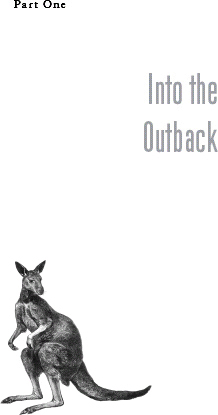
Chapter 1
I
FLYING INTO AUSTRALIA, I realized with a sigh that I had forgotten again who their prime minister is. I am forever doing this with the Australian prime ministercommitting the name to memory, forgetting it (generally more or less instantly), then feeling terribly guilty. My thinking is that there ought to be one person outside Australia who knows.
But then Australia is such a difficult country to keep track of. On my first visit, some years ago, I passed the time on the long flight reading a history of Australian politics in the twentieth century, wherein I encountered the startling fact that in 1967 the prime minister, Harold Holt, was strolling along a beach in Victoria when he plunged into the surf and vanished. No trace of the poor man was ever seen again. This seemed doubly astounding to mefirst that Australia could just lose a prime minister (I mean, come on) and second that news of this had never reached me.
The fact is, of course, we pay shamefully scant attention to our dear cousins Down Undernot entirely without reason, of course. Australia is after all mostly empty and a long way away. Its population, just over 18 million, is small by world standardsChina grows by a larger amount each yearand its place in the world economy is consequently peripheral; as an economic entity, it ranks about level with Illinois. Its sports are of little interest to us and the last television series it made that we watched with avidity was Skippy. From time to time it sends us useful thingsopals, merino wool, Errol Flynn, the boomerangbut nothing we cant actually do without. Above all, Australia doesnt misbehave. It is stable and peaceful and good. It doesnt have coups, recklessly overfish, arm disagreeable despots, grow coca in provocative quantities, or throw its weight around in a brash and unseemly manner.
But even allowing for all this, our neglect of Australian affairs is curious. Just before I set off on this trip I went to my local library in New Hampshire and looked Australia up in the New York Times Index to see how much it had engaged our attention in recent years. I began with the 1997 volume for no other reason than that it was open on the table. In that year across the full range of possible interestspolitics, sports, travel, the coming Olympics in Sydney, food and wine, the arts, obituaries, and so onthe Times ran 20 articles that were predominantly on or about Australian affairs. In the same period, for purposes of comparison, the Times ran 120 articles on Peru, 150 or so on Albania and a similar number on Cambodia, more than 300 on each of the Koreas, and well over 500 on Israel. As a place that caught our interest Australia ranked about level with Belarus and Burundi. Among the general subjects that outstripped it were balloons and balloonists, the Church of Scientology, dogs (though not dog sledding), Barneys, Inc., and Pamela Harriman, the former ambassador and socialite who died in February 1997, a misfortune that evidently required recording 22 times in the Times. Put in the crudest terms, Australia was slightly more important to us in 1997 than bananas, but not nearly as important as ice cream.
As it turns out, 1997 was actually quite a good year for Australian news. In 1996 the country was the subject of just nine news reports and in 1998 a mere six. Australians cant bear it that we pay so little attention to them, and I dont blame them. This is a country where interesting things happen, and all the time.
Consider just one of those stories that did make it into the Times in 1997, though buried away in the odd-sock drawer of Section C. In January of that year, according to a report written in America by a


